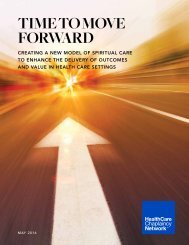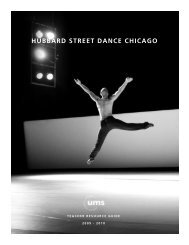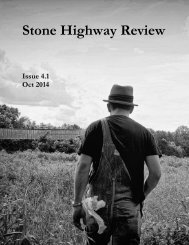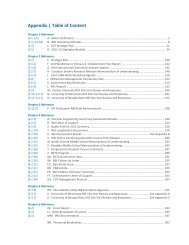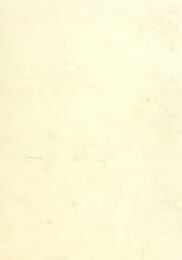Fries
Fries
Fries
You also want an ePaper? Increase the reach of your titles
YUMPU automatically turns print PDFs into web optimized ePapers that Google loves.
Charles C. <strong>Fries</strong>, linguistics and corpus linguisticscis were well established in their careers when they began work on the Browncorpus. Randolph Quirk began his work on the survey of English usage (a corpusproject, though not one that used computers at the beginning) well on intohis career. In other words the early corpus linguists were linguists who had beentrained in the older approaches to linguistics and then had the professional statusand the independence and vision to maintain their beliefs and fundamental waysof working in the face of considerable opposition.These days, with the advent of larger computers and their accessibility, whatin those old days was often merely a casual gathering of examples from variousconvenient sources has transformed itself to a much more careful approach tolarge corpora of millions of words, and the discipline which has developed as weprocess these extremely large corpora has been termed ‘corpus linguistics’.However, the size of the corpus and the use of a particular tool, the computer,should not define a discipline. 1 Rather, it seems to me that what defines the disciplineof corpus linguistics should be the assumptions concerning the nature oflanguage, what one considers to constitute evidence concerning the nature of thelanguage being described, and the principles which underlie the gathering anduse of a corpus in linguistic analysis. Of course the size of the corpus and thetools used do affect the sorts of results one may obtain. (In this case, large differencesin size make a qualitative difference in the sorts of results that can beobtained.) But the fundamental approach, the fundamental assumptions aboutscience and about the nature of language, the issues that are considered interesting,and the methodology used to explore those issues should remain roughlyconstant regardless of the corpus size or the tools used. If you grant me this, atleast with a ‘willing suspension of disbelief’, you will agree that corpus linguisticshas roots which extend at least back to the beginnings of modern linguistics.Given the current importance of corpus linguistics within linguistics generally,I thought it might be useful to discuss how corpora were used in one traditionof early work using corpora 2 , and to note some of the issues that wereencountered. Specifically, I want to examine the work of one figure from thefirst half of the twentieth century, Charles C. <strong>Fries</strong>, who consistently workedwith corpora. Before I discuss his approach to corpora I want to say a bit abouthis personal development and his development as a linguist, for his experiencesgreatly affected what he considered important in linguistics, what goals he choseas a linguist, and the methodologies he used to achieve these goals. Because ofthis, in this presentation I will organize the paper around his fundamentalassumptions about language and his goals, and then discuss how these principlesand goals affected his approaches to using corpora in linguistics.91



